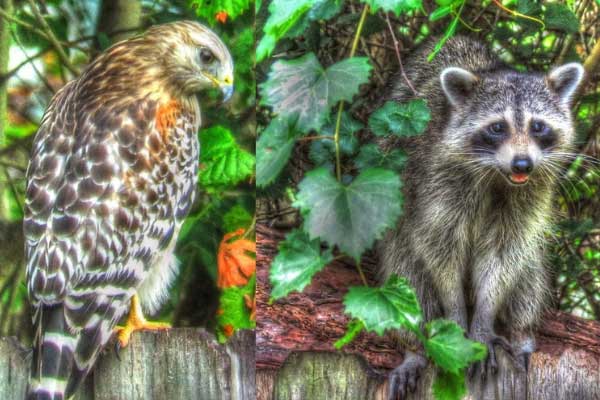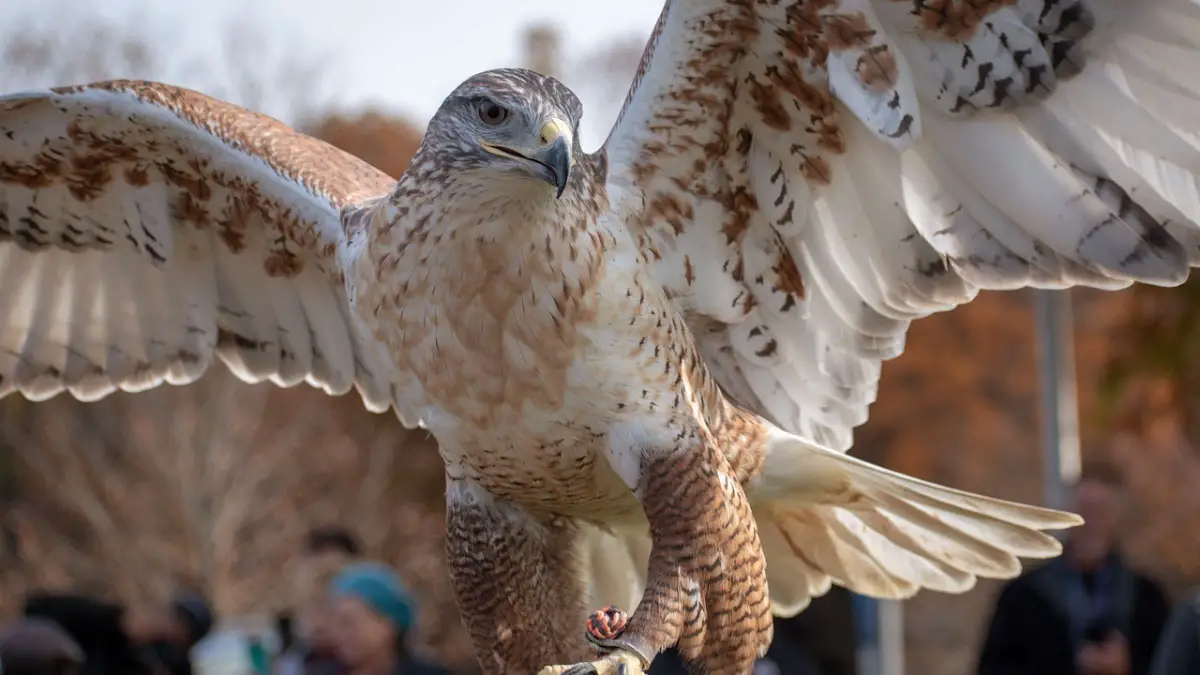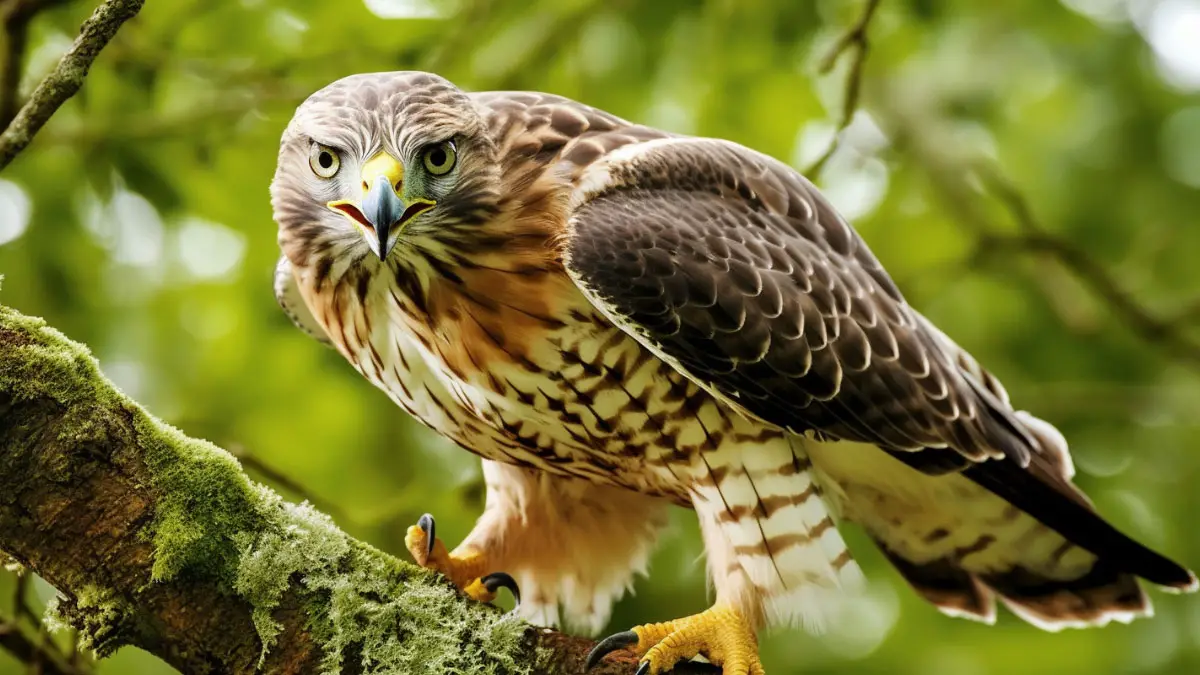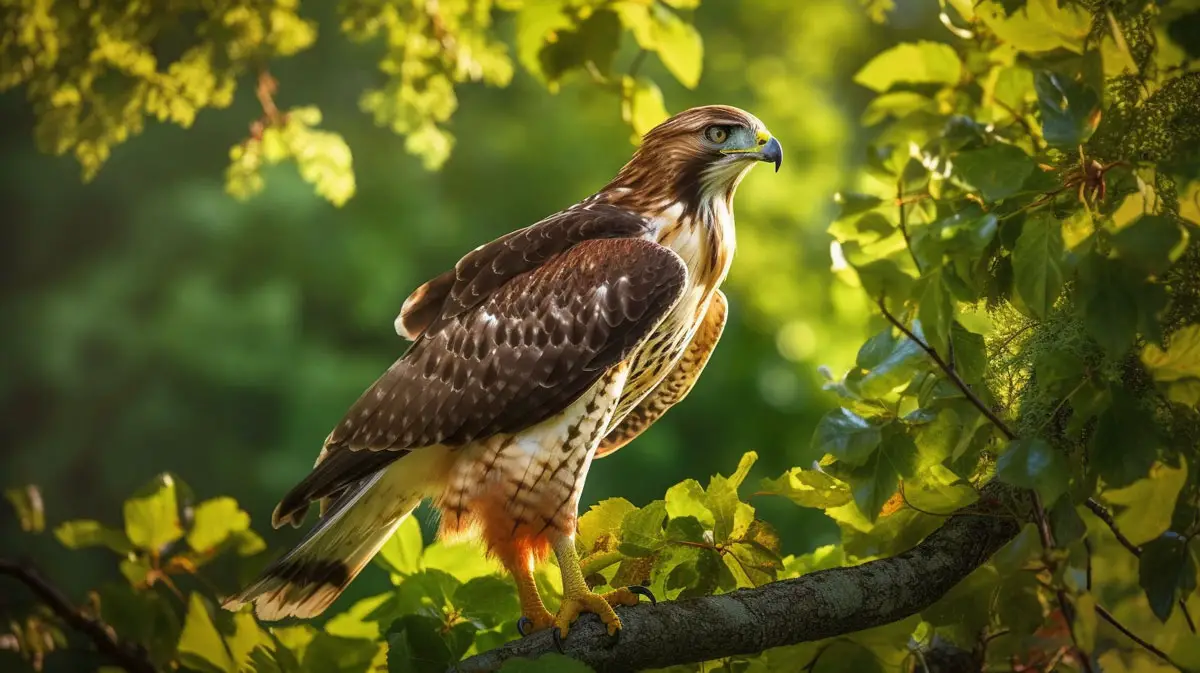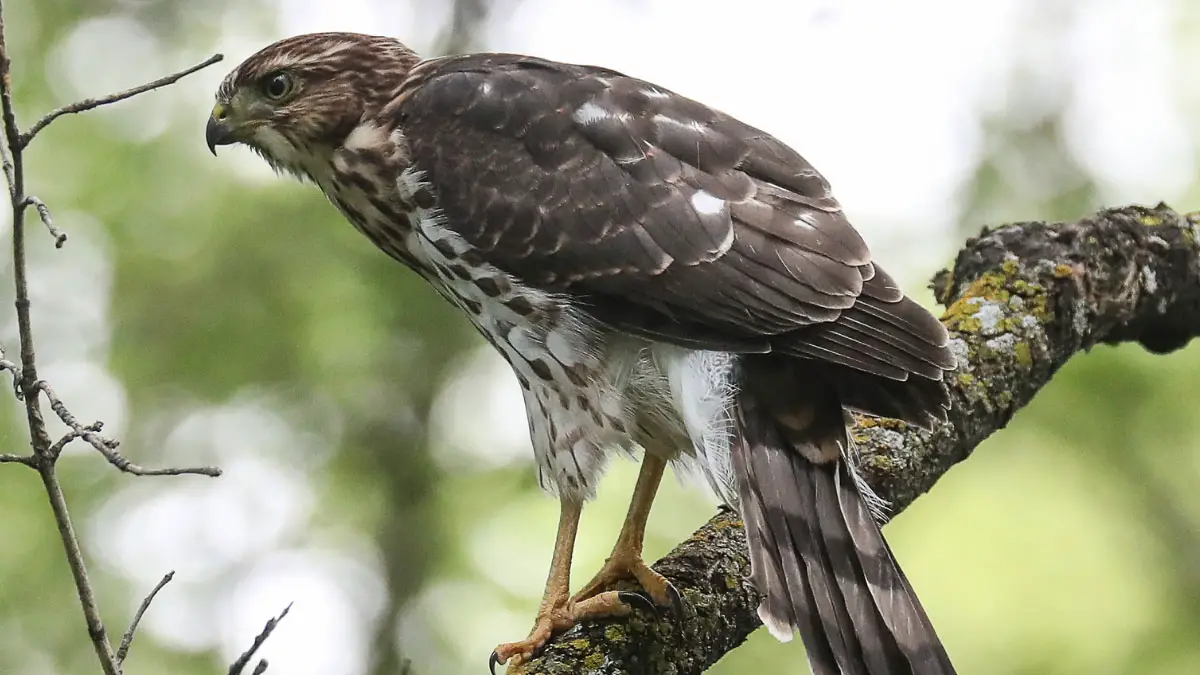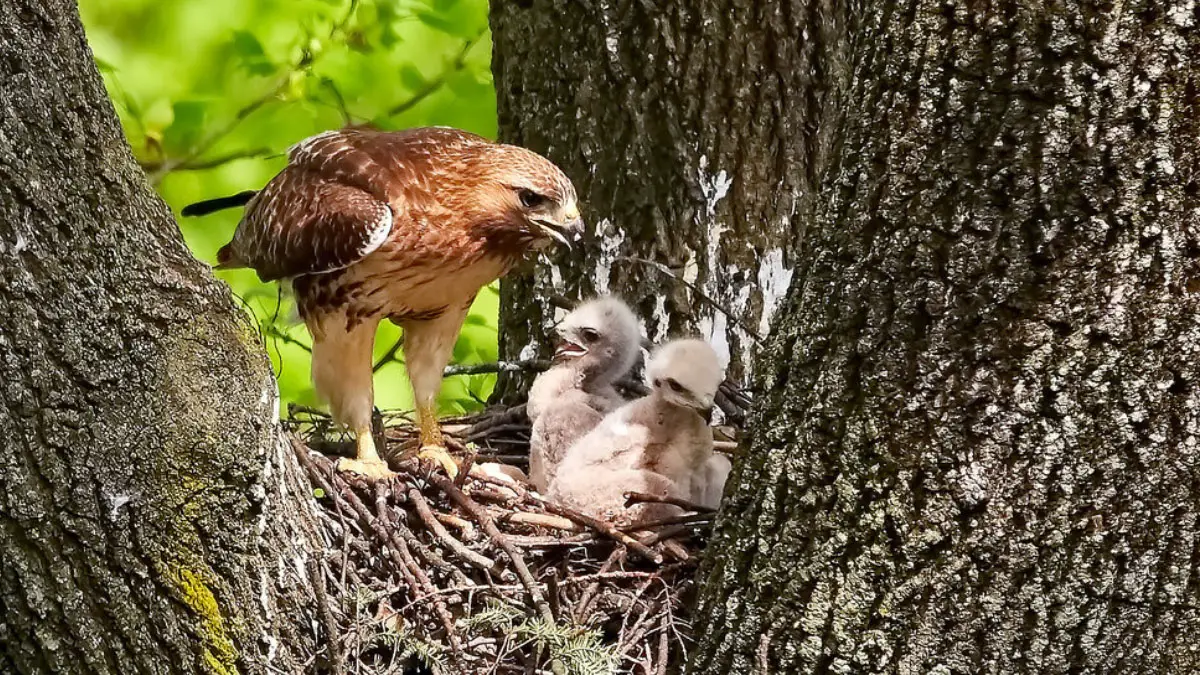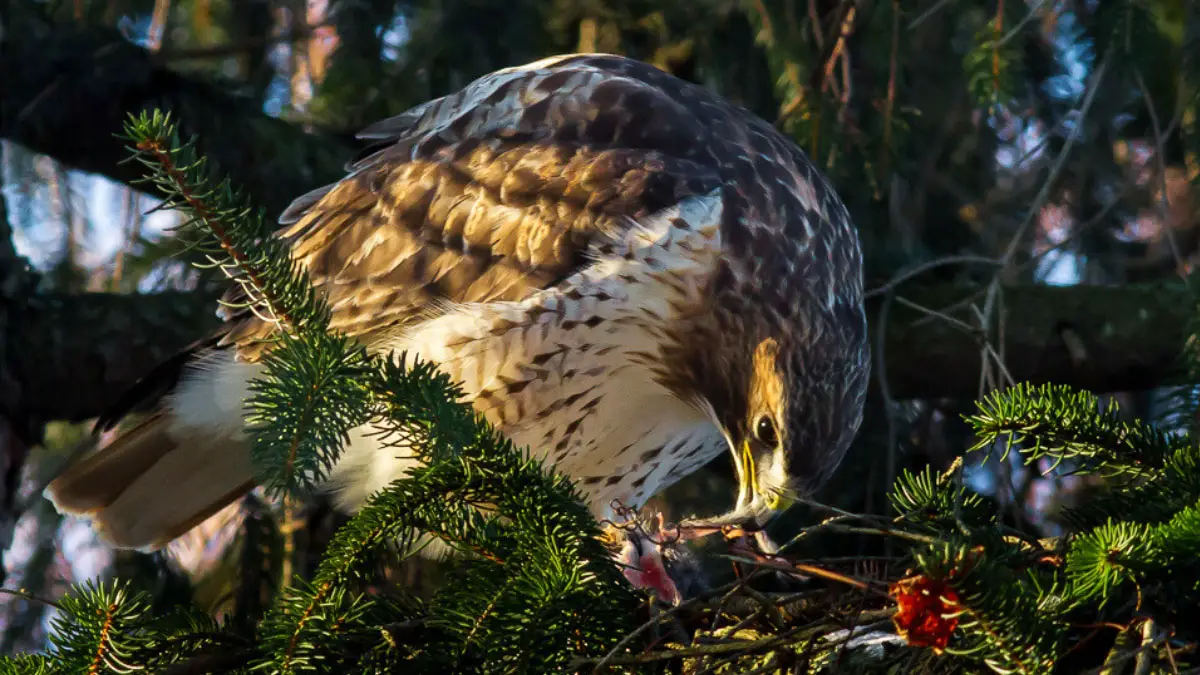Hawks are majestic birds of prey that eat almost any small animal. If they face a tough time, they will eat carrion too. You will be surprised to know how vast the range of their food source is.
You may be thinking, do hawks eat raccoons? Yes, they do. Hawks don’t go out of their way to look for raccoons. But if they get an opportunity to eat raccoons, they don’t miss it. Raccoons are not very small like mice. So hawks usually go for baby raccoons and avoid adult ones. They would also go for old and weakened raccoons but with extra caution.
Because raccoons, believe it or not, are at the top of the food chain, and they have next to no natural predators. This carnivorous predator hunts almost anything, even raccoons. Are you interested to know how and when a hawk eats raccoons? Please stick around to find out.
Do Hawks Eat Raccoons?
They certainly do. There are a few natural predators of raccoons, and the hawk is one of them. But raccoons are not their usual food. Hawks usually go for small mammals like mice and rodents.
Hawks are adept and successful hunters. But they still may fall into food shortages sometimes. And when that happens, a hungry hawk or desperate hawk won’t hesitate to go for a bit bigger mammals like raccoons. Even if there is no food shortage and hawks get an opportunity to eat raccoons, the hawk would snatch the opportunity right up.
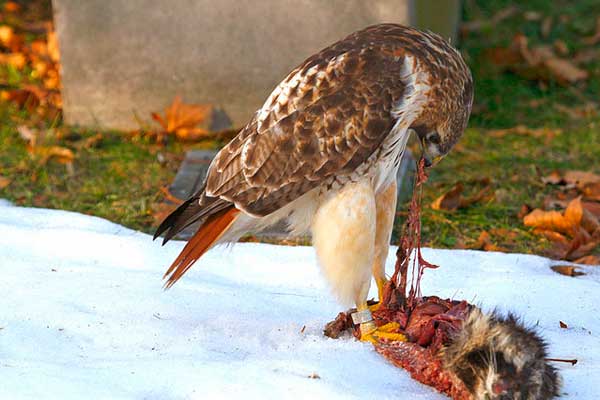
Raccoons babies are easy prey for hawks. They are not only small but also inexperienced. But it is quite rare to see hawks going for an adult raccoon. Hawks are very cautious of old raccoons that show any weird symptoms because they may carry the deadly rabies virus.
Which Hawks Eat Racoons?
Hawks can be of many sizes and types. Will a hawk hunt raccoon or not depends on quite a bit on its size, type, ferocity, speed, and other factors. Larger hawks are more likely to eat raccoons than smaller ones.
Kindly read the table below to know which hawks eat raccoons and when.
| Name | Trait | Prefer To Live In | Remark |
| Red-Shouldered Hawk | Weight: 1 kgs Flight Speed: 170 km per hour | mixed deciduous–conifer forests with swamps. | Relatively smaller than other hawks and goes for weak and little raccoons. |
| Red-Tailed Hawk | Weight: 1-2.5 kgs Flight Speed: 190 km per hour | Prefer open space, but would adjust to living anywhere. | Eat raccoons the most out of all hawk species. |
| Cooper’s Hawk | Weight: 0.7-1.5 kgs Flight Speed: 130Km per hour | Prefer forests and woodlands. | Mostly hunts bird for being swift. Only hunts slow and weak raccoons. |
| Swainson’s Hawk | Weight: 0.7-2 kgs Flight Speed: 120 km per hour | grasslands, savannas, steppes, and cultivated lands. | Hunts raccoon very often. |
| Ferruginous Hawk | Weight: 1.2-3 kgs Flight Speed: 120 km per hour | Prairie, grasslands, sagebrush steppe, scrubland, and desserts. | They are relatively larger hawks, so they often hunt raccoons and are mostly seen hunting adult raccoons in early summer. |
As you saw on the table, ferruginous hawks are the largest and hunt adult raccoons often. Other hawks are not big as the ferruginous, so they avoid adult raccoons and go for raccoon babies or weak raccoons that are easy prey.
The red-tailed hawk, which is the most common hawk in North America, is not the biggest in size, yet it hunts raccoons the most among other hawks.
How Does a Hawk Kill Raccoons?
Mammals, generally the small ones, don’t actually look directly at the sky as they don’t expect any threat from the sky. They always look around to see if any predator is nearby or not. As a relatively small mammal, the raccoon is no exception.
They don’t keep their eyes on the sky when there are out in the open. And hawks take it as an advantage to attack.
Hawks sit on the tallest tree or building and patiently look for their prey, such as raccoons. When they spot a raccoon that they can hunt, they dive towards it with great speed. Having big wings helps them catch great speed within a short time with the help of gravity without using many calories.
After coming close to a raccoon, they spread their wings for stability and position their sharp talons (nails) forward. And catch the raccoon by piercing through their skin and flesh using the talons. They hold the raccoon down and keep the grasp strong until the raccoon dies. Then they carry the dead raccoon to their nest.
That’s exactly how a hawk kills a baby raccoon.
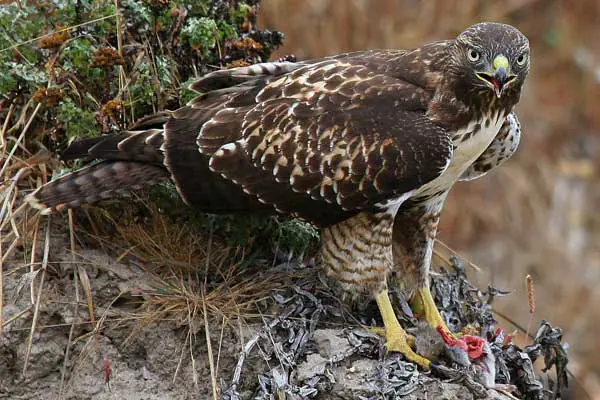
When it comes to hunting adult raccoons, things get a bit complicated. You see, a baby raccoon only weighs about 0.2-1.5 kgs, which a hawk may carry to their nest.
But an adult raccoon can weigh more than 10 kgs. A hawk can not carry that much weight. Hawks merely can carry a fraction of their own weight.
So when hunting adult raccoons, they follow the same process as hunting baby raccoons. They glide down to the target and catch them with their talons. They try to catch raccoons by the spine, so they become paralyzed. After catching it, hawks start eating it on the spot while the raccoon is still most probably alive.
How Does A Raccoon Eat Hawk?
Raccoons cant hunt an adult hawk there, for they cant eat adult hawks. So they follow adult hawks to locate their nest. When they get an opportunity, like when adult hawks are not nearby the nest, they make a sneak attack and eat hawk egg and hatchling (baby hawk).
What Else Do Hawks Eat?
You might wonder what animal a hawk eats. Well, they eat anything they can hunt, steal from other predators, and even carrion. But the size, shape, and the place a hawk lives in greatly dominate what they eat or can eat.
For example, a red-tailed hawk lives on open land and eats cotton tail rabbits, meadow voles, gray squirrels, snakes, etc.
And Cooper’s hawk, which lives in forests and woodlands, eats band-tailed pigeons, rock doves, common grackles, squirrels, etc.
Here are a few names of animals that a hawk would generally eat or can eat if they get a chance: birds, fish, insects, amphibians, small mammal, medium mammal, large mammal, and carrion.
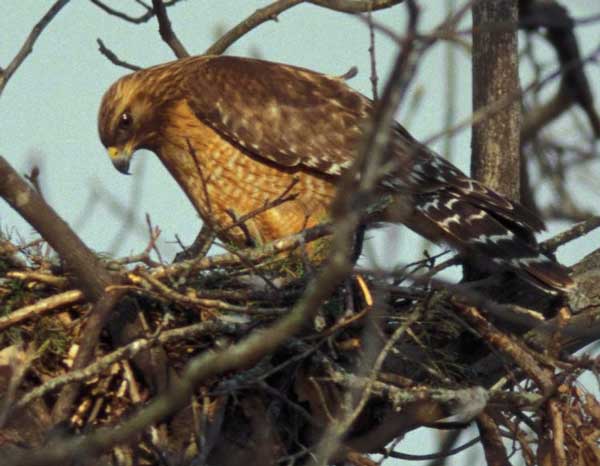
FAQ:
We frequently get asked a few common questions regarding hawk-eating raccoons. Here we answered the two most asked questions in detail so that you don’t leave having any questions in mind.
It’s a bit of both. Raccoons are healthy for hawks, just like any other mammal prey. But raccoons are also prone to infestation and diseases. So by any chance, if a hawk eats a diseased raccoon, it will be unhealthy for the hawk. That being said, raccoons are still a very nutritious source of food for hawks.
Hawks are diurnal birds, so they hunt during the day. Predators like hawks, mountain lions, and alligators hunt raccoons during the daytime.
Conclusion
We hope this article answers your question, “do hawks eat raccoons?”. Hawks eat baby raccoons whenever they get an opportunity because they are easy prey. Adult raccoons are not only difficult to hunt but there is a risk of disease too.
Do not be alarmed; no hawk species hunts raccoons solely. Hawks have such a diverse diet they even eat dead animals such as dogs sometimes. The chance of a raccoon being on a hawk’s diet is slim.
Do you want to know if hawks eat doves or foxes? Read our articles about it to learn more.
